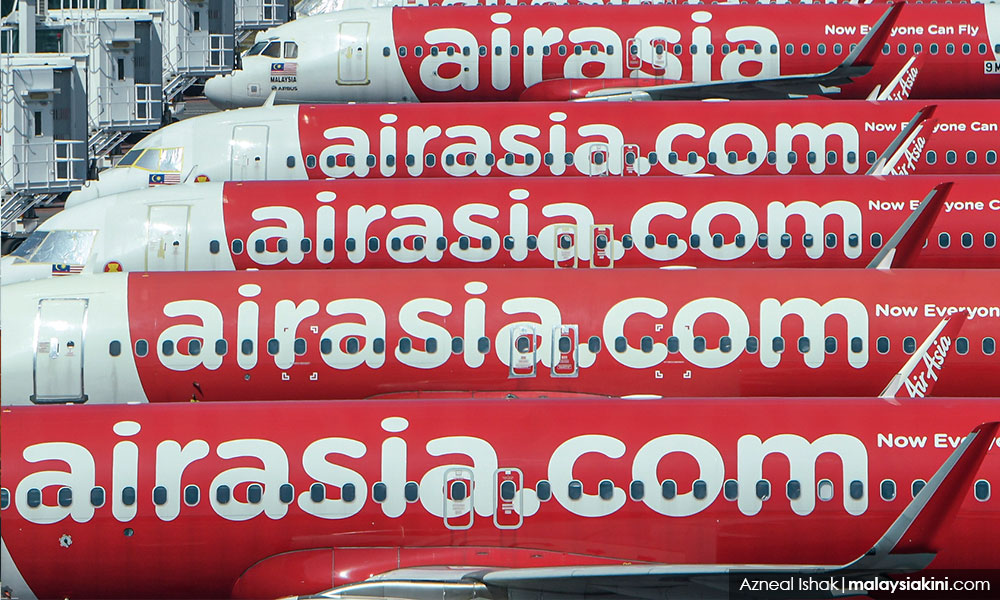Lately, there has been a lot of hype on the carbon market, with most people being sceptical about carbon credits and their roles in offsetting emissions. I would like to share my unbiased view here, without fear or favour.
I once sat in for someone at a National Carbon Offsetting and Reduction Scheme for International Aviation (Corsia) task force meeting chaired by AirAsia.
The meeting was held to discuss strategies and initiatives to be taken by airlines in achieving compliance as per the International Civil Aviation Organization (ICAO) council rules.
My then colleague and I shared with the meeting the carbon market mechanisms under Article 6 of the Paris Agreement and greenhouse gas accounting for aviation.
Under Corsia, airlines with annual emissions of more than 10,000 metric tonnes of carbon dioxide (CO2) will have to monitor and report emissions for international flights.
Airlines are also required to purchase carbon credits from a regulated carbon market.

At that time, AirAsia informed us that there were fewer than ten carbon projects in Southeast Asia that could generate Corsia-eligible credits.
Airlines like AirAsia may be forced to buy from abroad if there are no Corsia-eligible credits in Malaysia.
Two types of carbon market
Today, I am glad to know that the Natural Resources and Environmental Sustainability Ministry (NRES) is conducting a study on the National Carbon Market Policy.
The policy will look at ways to support the adoption of both compliance and voluntary carbon market mechanisms in Malaysia.
Before the study, the government only looked at the compliance carbon market, which is accomplished through either a carbon tax or a cap-and-trade scheme.
On the other hand, the voluntary carbon market operates independently from government regulation and participation in this market is entirely optional.
Normally, companies or organisations voluntarily participate in this market either to fulfil their own sustainability goals or to demonstrate their commitment to reducing their carbon footprint.
Despite early scepticism, we should take a chance on the carbon market. It could be our last resort to reduce carbon emissions.
We must understand that not all industries can decarbonise easily. Going green can increase the cost of doing business, especially if it involves high-tech innovations.

Often, companies will only make this a long-term commitment if they are sure that the government will support them via loans or incentives. Technologies must also be made available to everyone at an affordable price.
Thus, offsetting via carbon credits purchased elsewhere is a viable option for some industries now.
Carbon cowboys
However, there are concerns about carbon cowboys purchasing carbon credits in developing countries and then walking away from the project.
They may promise to ensure that the trees remain intact for a few decades and that the local communities get paid for their conservation efforts, but fail to deliver.
To the uninitiated, carbon cowboys are more interested in making money from trading carbon rather than conserving nature.
They face allegations that they do not adequately inform local communities about the intended projects and the potential pitfalls and they often lie to locals using poor project design documents.
I am not against the carbon market. In fact, I see it as an important mechanism which can provide some economic benefits.
Speaking from my experience in working with a conservation NGO, funding is hard to come by as conservation initiatives are often too expensive and time-consuming.
Having said that, the carbon market can make people pay more to conserve nature. You just need to do it in the right way!
Hopefully, the National Carbon Market Policy will regulate the quality and effectiveness of carbon offset projects.
At the same time, I am pleased to read that Verra, a non-profit organisation that comes up with standards in environmental and social markets, is establishing a new Reducing Emissions From Deforestation and Forest Degradation (Redd) Methodologies Working Group.
The Working Group will support the further development of Verra’s Redd Methodologies and the continued evolution of the Verified Carbon Standard Programme’s rules and requirements related to Redd.
With improved standards and regulations, the carbon market can be a cost-effective way to decarbonise, which would otherwise not be implemented due to policy failure or financial constraints.
Just beware of carbon cowboys! - Mkini
CHONG YEN MEE is a climate change analyst by training and enjoys writing doomsday stories that make people act.
The views expressed here are those of the author/contributor and do not necessarily represent the views of MMKtT.




No comments:
Post a Comment
Note: Only a member of this blog may post a comment.